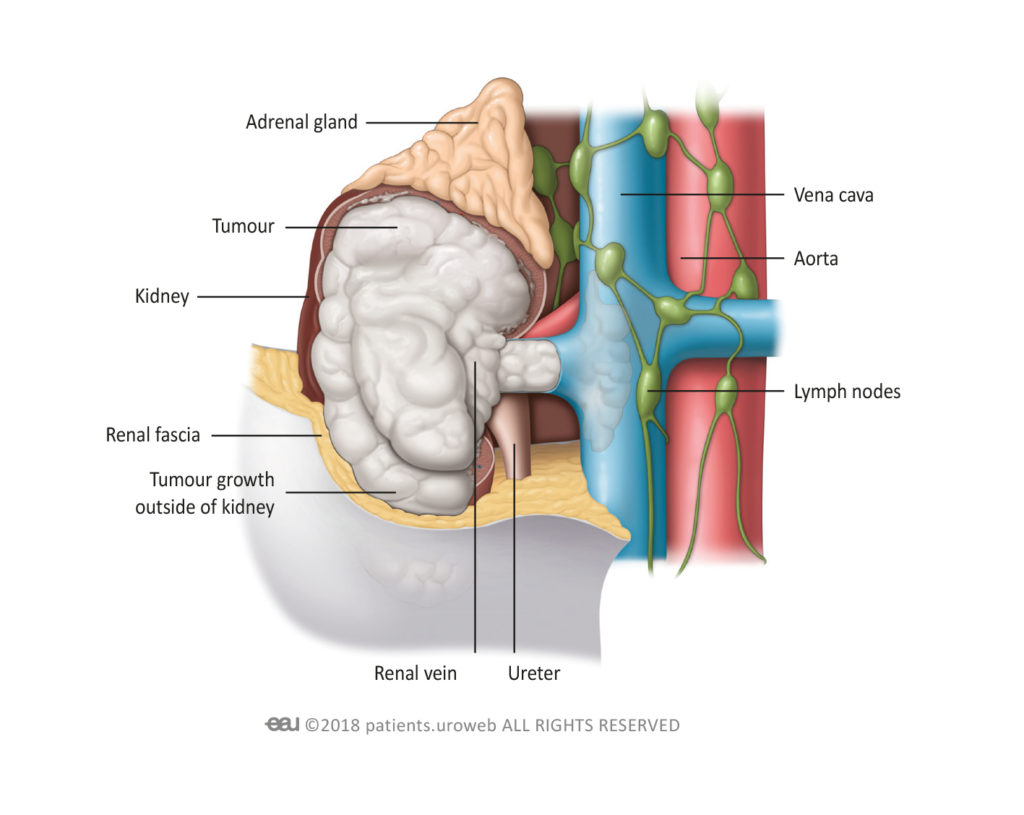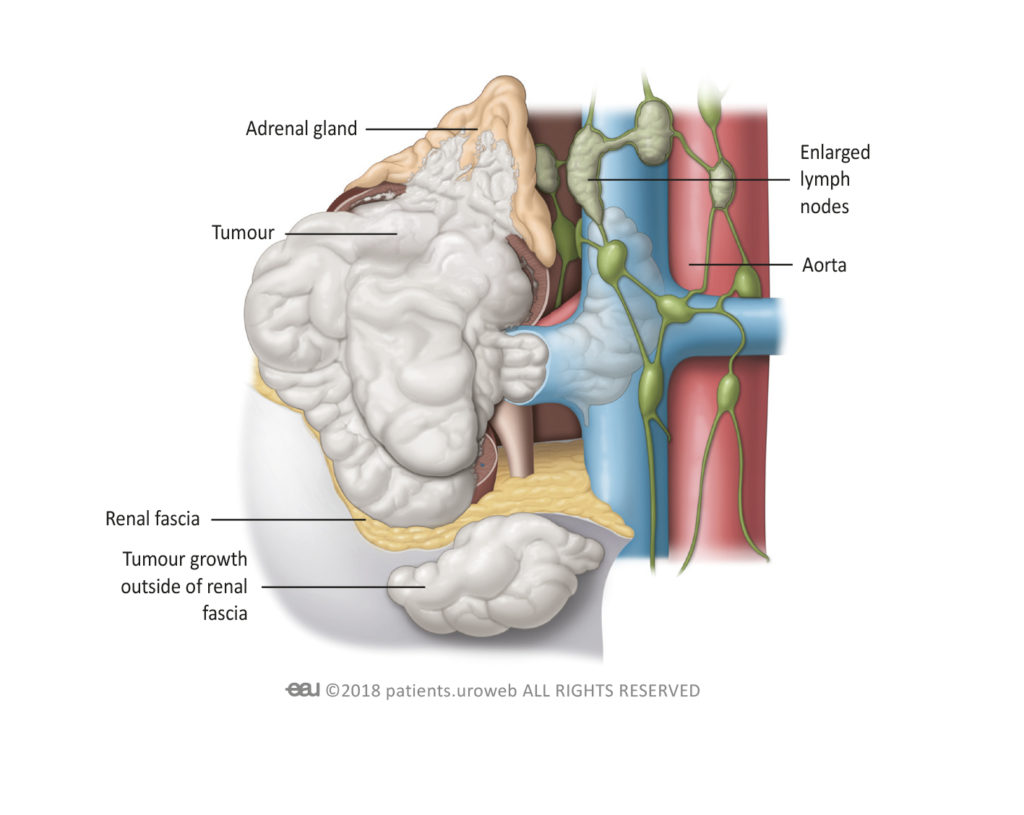Table of Contents [hide]
What is locally-advanced kidney cancer?
Locally-advanced kidney cancer refers to a tumour which has spread to or beyond the blood vessels, tissue, organs, or lymph nodes surrounding the kidney. It may be a stage III or IV tumour, depending on how far outside the kidney the tumour has spread.
If you are diagnosed with locally-advanced kidney cancer, your doctor can recommend to treat the cancer with radical nephrectomy or embolization. Each procedure has its own advantages and disadvantages. The choice of treatment depends on your individual situation.
This section describes the different treatment options, which you should discuss with your doctor.
This is general information which is not specified to your individual needs. Keep in mind that situations can vary in different countries.


Treatment options for locally-advanced kidney cancer
The most common treatment to cure locally-advanced kidney cancer is surgical removal of the kidney which contains the tumour.
Locally-advanced kidney cancer can be treated with a procedure called radical nephrectomy. This means that the kidney where the tumour is located and the surrounding tissue are removed. Radical nephrectomy can be performed by open or laparoscopic surgery. If surgery is impossible or risky, the doctor may recommend embolisation.
These are some topics you should discuss with your doctor when planning your treatment pathway:
- Your medical history
- If there are any cases of kidney cancer in your family
- Your kidney function
- What to consider if you only have one kidney
- Whether you have one or more tumours in one or both of your kidneys
- The kind of treatment available at your hospital
- The expertise of your doctor. Ask your doctor about his or her experience with the recommended treatment option
- Your personal preferences and values
- Support during and after treatment
Follow-up
After surgery, you will meet with your doctor. In this visit, both the results of the surgery and the follow-up schedule will be discussed. Ask for a care plan so you can see how often you will need to see your doctor.
Write down questions you may have before the visit.
Examples of questions you can ask are:
- Is the cancer gone?
- Do I need additional treatment? If so, what options are relevant for me?
- What are the risks of the cancer coming back?
- How will the treatment and the kidney cancer affect my quality of life?
- What kind of tests do I need before the follow-up visits?

